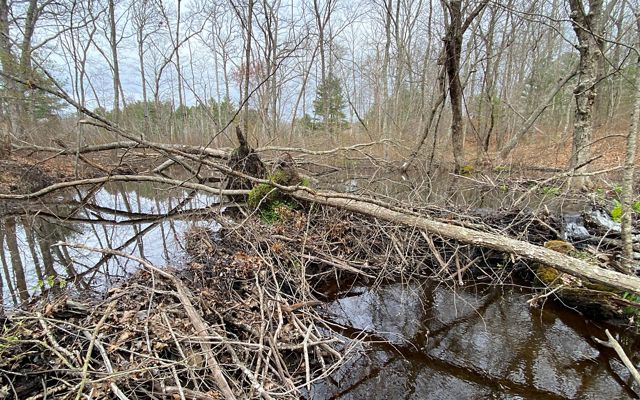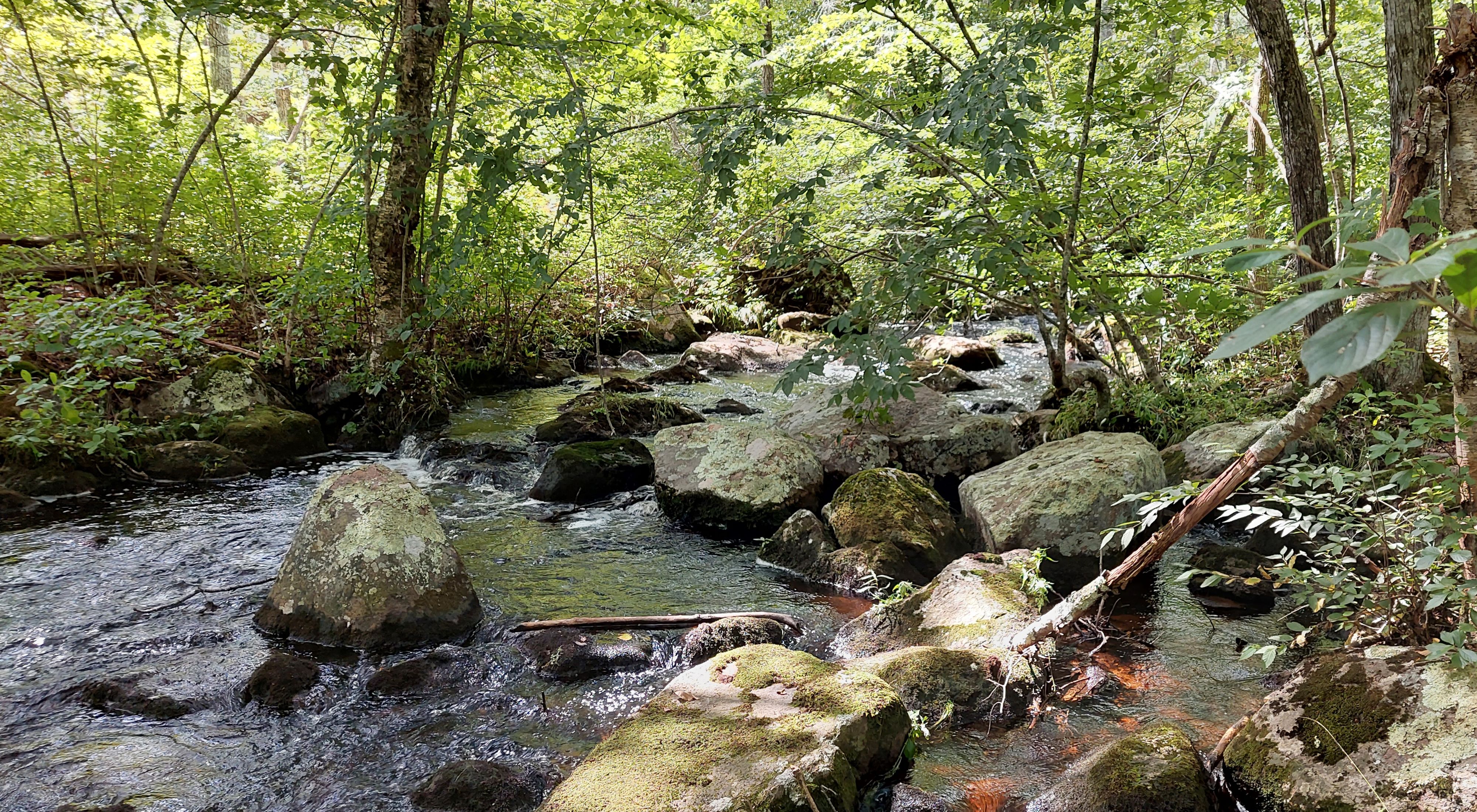TNC, Land Trust Conserve High Priority Forest on Richmond's Beaver River
Conservation partnership adds 52 acres to Beaver River Preserve.
Media Contacts
-
Tim Mooney
The Nature Conservancy
Mobile: 401-529-1072
Email: tmooney@tnc.org

The Nature Conservancy (TNC), in partnership with the Richmond Rural Preservation Land Trust, announces the permanent conservation of 52 acres of undeveloped oak, maple and pine forest along the Beaver River in Richmond, Rhode Island. The parcel has been added to TNC’s Beaver River Preserve.
With more than 500 feet of river frontage, the property was identified as a high priority for conservation in the Beaver River Watershed Assessment, a report funded by the Environmental Protection Agency through the Narragansett Bay Estuary Program and presented to Richmond officials in April 2021. The goal of this assessment was to identify important natural resources and habitats within the watershed and prioritize the projects that would best restore, protect and enhance the Beaver River.
Quote: Scott Comings
“This is such a key piece for the Beaver River. The land trust’s support enabled us to act quickly and get the land into conservation.”
“This is such a key piece for the Beaver River, which is one of Rhode Island’s healthiest coldwater streams,” said Scott Comings, Associate State Director of TNC’s Rhode Island chapter. “The land trust’s support enabled us to act quickly when the opportunity arose and get the land into conservation.”
The Richmond Rural Preservation Land Trust contributed $187,500 toward the purchase, and will hold a conservation easement, providing additional legal protection for the property. TNC matched the land trust’s contribution with funding from the Bafflin Foundation, the Ginty Fund and individual donors. This was the first draw from Ginty Fund, a TNC-held endowment that was established by the Thomas A. Ginty, Jr. Trust of Westerly to support land conservation in Rhode Island.
“Buffering the river and maintaining as much forest canopy as possible is critically important for brook trout, amphibians, aquatic insects and other coldwater-dependent species,” said Suzanne Paton, chair of the Richmond Rural Preservation Land Trust. “Conservation of this parcel is aligned with the Land Trust’s mission of preserving and protecting open space within the Town of Richmond in perpetuity. I hope we can continue to work with local landowners and our conservation partners to preserve the ecological assets and rural character of our town.”
TNC’s Beaver River Preserve is located on Fox Ridge Drive and offers two miles of blazed hiking trails that feature impressive rocky outcrops and the ruins of a colonial era grist mill. Expanding the preserve will enable TNC to explore options for a parking area on Hillsdale Road, with a possible connection to the existing trail system.
The Beaver River is part of the Wood-Pawcatuck National Wild and Scenic River System, designated by Congress in 2019. Rhode Island’s statewide Wildlife Action Plan lists 40 species of “greatest conservation concern” found in the Beaver River watershed, including brook trout and wood turtles.
The Nature Conservancy is a global conservation organization dedicated to conserving the lands and waters on which all life depends. Guided by science, we create innovative, on-the-ground solutions to our world’s toughest challenges so that nature and people can thrive together. We are tackling climate change, conserving lands, waters and oceans at an unprecedented scale, providing food and water sustainably and helping make cities more sustainable. The Nature Conservancy is working to make a lasting difference around the world in 77 countries and territories (41 by direct conservation impact and 36 through partners) through a collaborative approach that engages local communities, governments, the private sector, and other partners. To learn more, visit nature.org or follow @nature_press on X.
